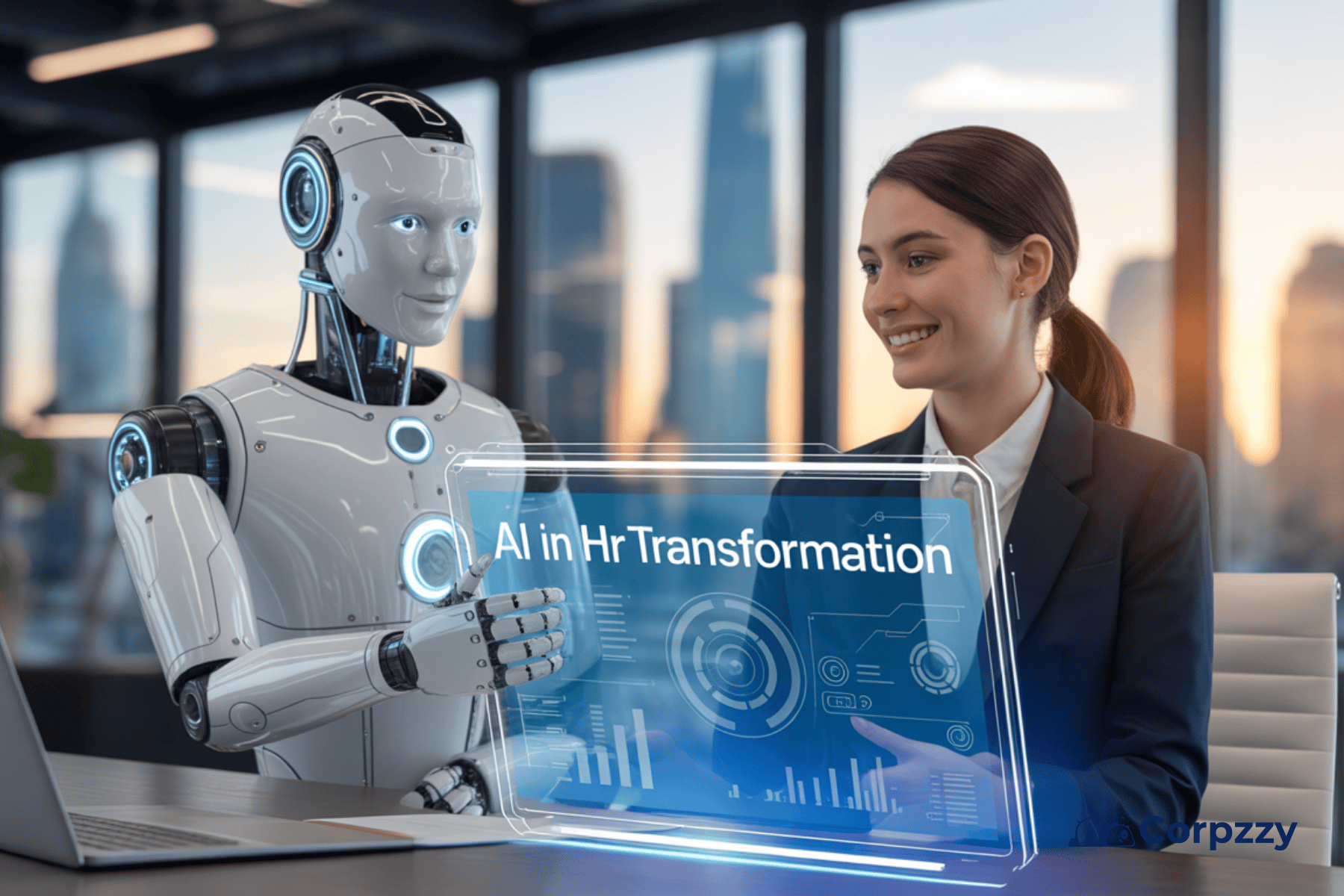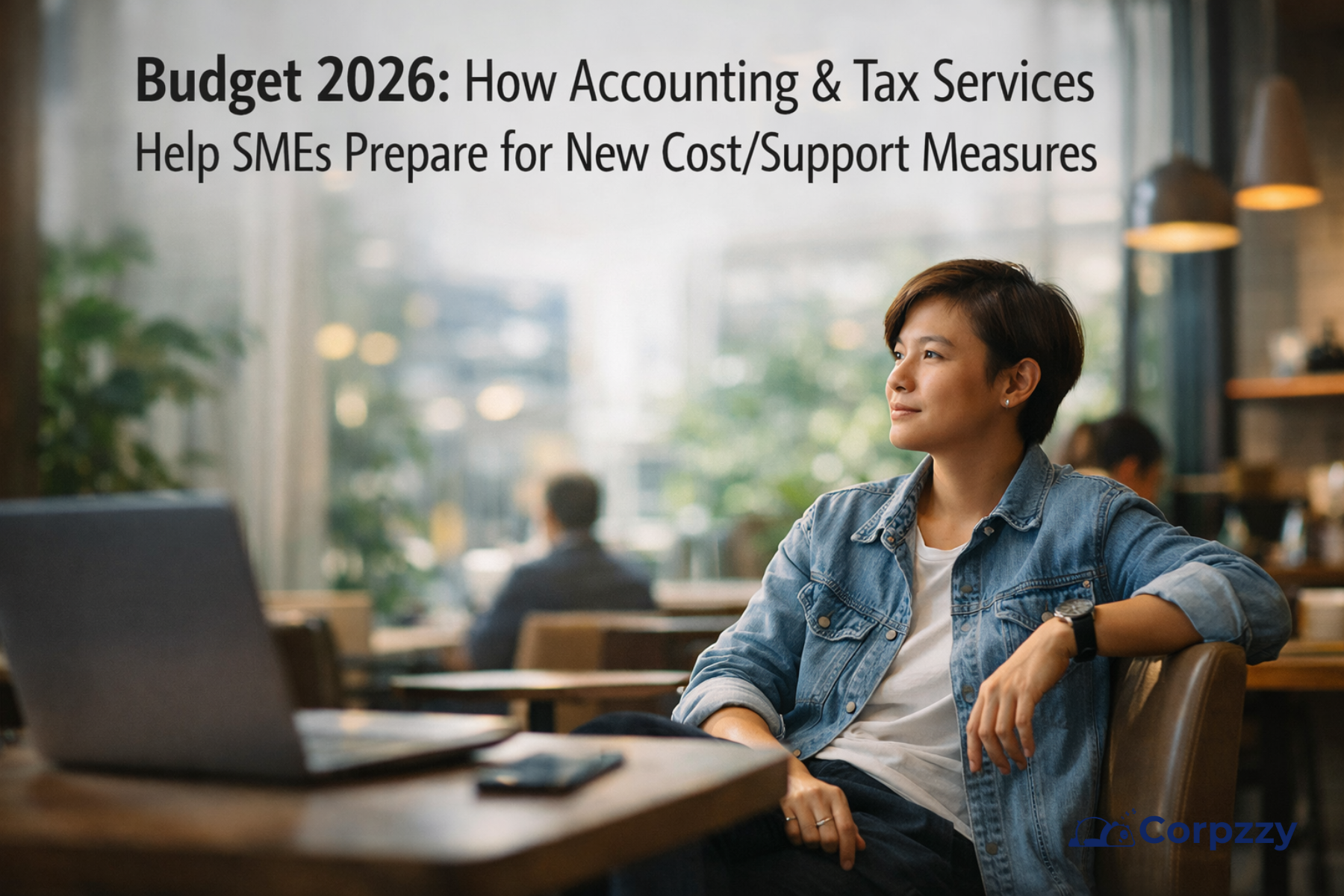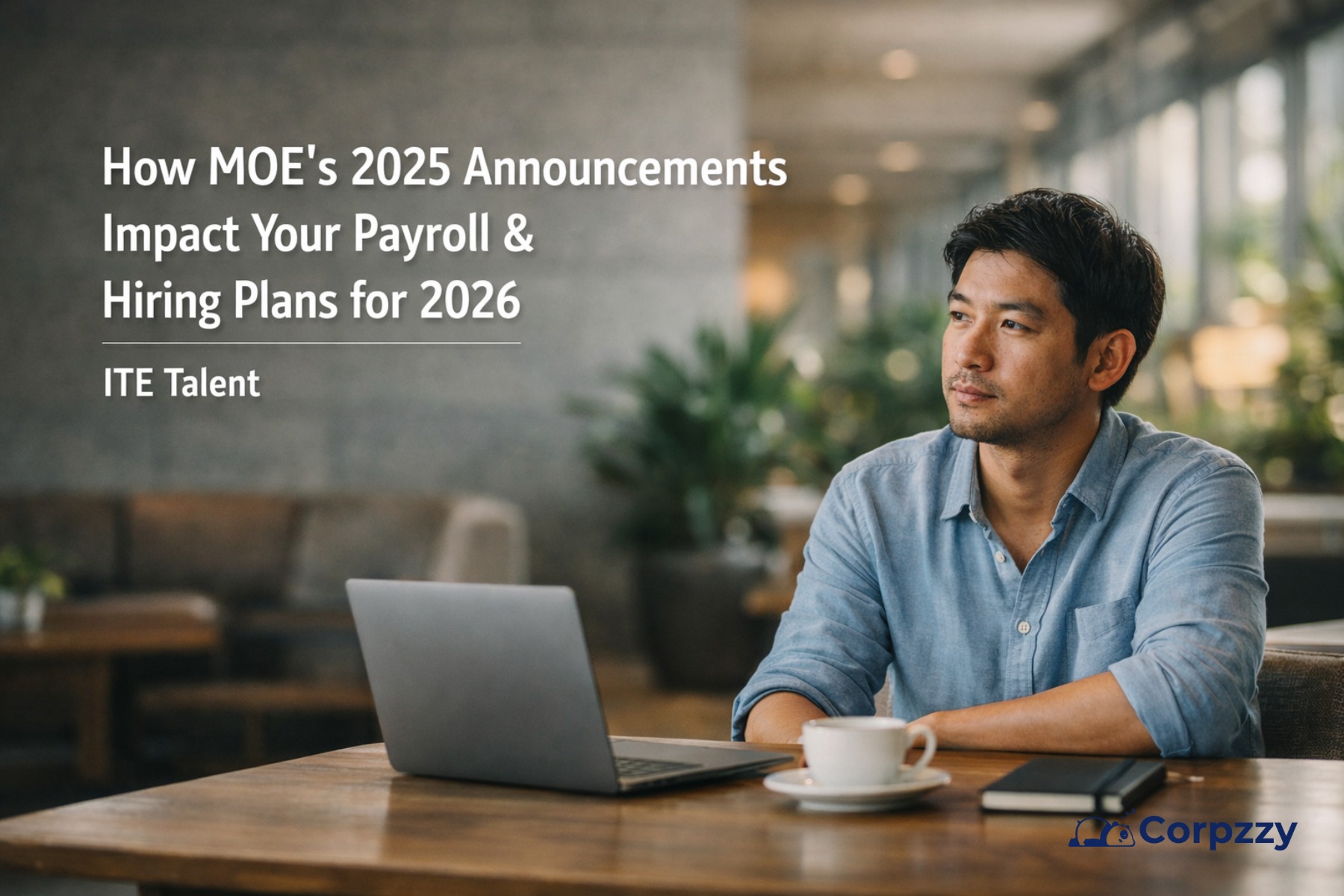AI Is Transforming HR — Structure Your Company for Smart Hiring, Workforce Compliance, and EP Readiness
AI Is Transforming HR — Structure Your Company for Smart Hiring, Workforce Compliance, and EP Readiness
Outline

Artificial Intelligence (AI) is transforming how companies hire, onboard, and manage employees. From automating job screenings to predicting employee retention, AI is now a key part of modern HR strategies. However, many startups and SMEs in Singapore rush to adopt these tools without addressing critical compliance gaps. To fully benefit from AI in hiring, your company must be legally structured and employment-ready from day one. Singapore’s business landscape is rapidly embracing AI technologies, especially in the HR space. AI-powered recruitment platforms now assess resumes, predict job fit, and even rank candidates for interviews. This speeds up the hiring process and reduces bias—when properly deployed. But improper implementation can lead to compliance breaches under Singapore’s employment laws.
Key Takeaways
- AI can improve HR efficiency, but businesses must be legally structured and compliant before using it in hiring.
- Proper company incorporation is the foundation for employment contracts, EP applications, and fair hiring policies.
- AI tools must support MOM’s Fair Consideration Framework and PDPA guidelines.
- SMEs should document every step of their AI-assisted hiring process to avoid bias and ensure transparency.
- Corporate service providers can help startups structure HR systems, apply for EPs, and stay compliant while leveraging AI.
Why Structuring Your Company Matters Before Using AI in Hiring
Before deploying AI tools in recruitment, your company must be properly incorporated in Singapore. A legal entity ensures that all HR activities, including AI-powered hiring, are backed by legitimate frameworks. Only registered businesses can hire staff, offer employment contracts, or apply for employment passes. Failing to incorporate properly before hiring—AI or not—could expose your company to severe penalties. Proper company incorporation supports transparent hiring practices and documentation. In Singapore, all companies must adhere to MOM’s Fair Consideration Framework (FCF). AI tools must complement, not replace, these legal obligations. That means even if an AI tool shortlists a candidate, you still need valid employment terms, contracts, and salary structures.
AI in Hiring: Benefits and Risks for SMEs in Singapore
AI can automate the most time-consuming parts of recruitment. Resume screening, interview scheduling, and candidate profiling can now be done in seconds. These tools are especially helpful for small businesses with lean HR teams. They save time, reduce administrative load, and speed up decision-making. However, using AI in hiring comes with risks if your HR systems are not compliant. Biased algorithms may result in unfair hiring decisions that breach anti-discrimination laws. If you hire foreigners using AI tools, you’ll still need to show fair hiring efforts under the FCF. Singapore takes a strict approach—failure to prove fair hiring can result in rejected EP applications.
Employment Pass (EP) Compliance: Why It Matters With AI
Many startups in Singapore aim to hire foreign tech talent using EPs. If your AI-driven hiring process isn’t structured for compliance, these applications may be denied. MOM evaluates your HR practices, documentation, and justification for hiring foreigners. AI must be used responsibly to support—not replace—transparent recruitment methods. To support your EP applications, your business must have:
- a valid ACRA registration,
- up-to-date employment contracts, and
- properly documented job descriptions.
Your hiring platform, AI-driven or not, must align with these requirements.
Structuring HR for AI-Enabled Hiring
A compliant HR structure starts with company incorporation and extends to hiring policies. Clearly documented roles, salary bands, and KPIs are necessary to justify hires—especially foreign ones. Your AI tools should integrate with these internal policies, not operate in isolation. This helps ensure consistent and lawful hiring practices. Your HR team or outsourced provider should audit how AI ranks candidates. Does the algorithm favour certain keywords unfairly? Does it filter out foreign resumes or prioritise local education without clear justification? These are compliance risks that must be addressed early on.
Common Mistakes Startups Make With AI in Hiring
Many startups assume AI tools replace the need for HR staff or legal advisors. This is a costly misconception. AI tools need to be trained, monitored, and regularly updated to avoid bias or errors. Without human oversight, AI-driven hiring can lead to discriminatory practices or misclassification.
Another mistake is skipping EP readiness until after hiring. If your candidate is selected by AI but you haven’t structured your HR or applied for the EP early, you’ll face delays. Worse, MOM may reject the application if your justification isn’t solid. Having a company secretary or HR advisor from the start helps you prepare these in advance.
Building a Compliant AI-Ready Hiring Framework
Start by registering your business as a Private Limited Company in Singapore. This structure is preferred for scalability, funding, and employment compliance. Next, appoint a company secretary to manage your annual filings and HR resolutions. They’ll ensure your employee registers, job roles, and contracts meet ACRA and MOM standards.
After incorporation, develop internal hiring policies that include how AI tools are used. Document each step of your recruitment process—screening, shortlisting, and offers. Ensure all decisions are auditable in case of government inquiries. This is especially important if you plan to hire foreigners and apply for EPs.
EP Application Strategy in the Age of AI
AI can help source candidates globally, but work pass eligibility is still a human-led decision. Each EP application must include salary, job scope, company info, and justification. If the hiring process involves AI, document how it maintains fairness and legal transparency. This can support your case during MOM’s vetting process.
Partnering with a corporate service provider can make this easier. They’ll handle your incorporation, draft compliant contracts, and prepare your EP submissions. They can also advise on job scopes that align with MOM’s criteria. This ensures your AI-powered hiring doesn’t stall at the approval stage.
Government Expectations Around Fair Hiring
Singapore’s Ministry of Manpower closely monitors how companies hire—especially those that frequently apply for EPs. The FCF requires employers to advertise jobs on MyCareersFuture.sg for at least 14 days. This rule applies even if your AI platform already sourced candidates. Your company must show it made efforts to consider local applicants fairly.
Using AI in hiring doesn’t exempt you from these obligations. In fact, your AI system must align with them. For example, you should retain records of how local applicants were scored or rejected. This will help you defend your case during audits or investigations.
Data Protection and AI in HR
HR data is sensitive. AI tools must comply with Singapore’s Personal Data Protection Act (PDPA). That means candidate data must be securely stored, used only for intended purposes, and disclosed appropriately. Companies using cloud-based AI must verify data storage locations and protection levels.
Before launching any AI hiring tool, conduct a Data Protection Impact Assessment (DPIA). This evaluates the risks of using personal data in automated decision-making. It also helps align your HR practices with PDPA standards. Failing to do so may result in fines or reputational damage.
Why SMEs Should Act Now
AI in HR is no longer a trend—it’s a competitive advantage. But adopting it without the right legal structure and HR setup can backfire. Startups and SMEs must act early to structure their company for AI compliance. This includes company incorporation, HR policy design, and EP readiness.
If you delay incorporation, you delay hiring. If your HR policies are outdated, your AI tools can’t operate effectively. If your EP process isn’t compliant, your best foreign candidate may walk away. SMEs that act now will avoid costly setbacks later.
How We Can Help You Set Up for AI Hiring Success
Our team helps startups and SMEs in Singapore incorporate the right way. We provide company secretary services to manage your compliance filings. We assist with drafting HR policies, employment contracts, and EP applications. This ensures your hiring process—AI or not—is always aligned with local regulations.
We also help you audit your hiring workflow for FCF and PDPA compliance. Whether you’re hiring locals or foreigners, we ensure your process stands up to scrutiny. If you’re using AI tools, we’ll help document how decisions are made. This protects your business while enhancing recruitment speed and efficiency.
Frequently Asked Questions
Questions? We Have Answers
Related Business Articles
Share This Story, Choose Your Platform!


Artificial Intelligence (AI) is transforming how companies hire, onboard, and manage employees. From automating job screenings to predicting employee retention, AI is now a key part of modern HR strategies. However, many startups and SMEs in Singapore rush to adopt these tools without addressing critical compliance gaps. To fully benefit from AI in hiring, your company must be legally structured and employment-ready from day one. Singapore’s business landscape is rapidly embracing AI technologies, especially in the HR space. AI-powered recruitment platforms now assess resumes, predict job fit, and even rank candidates for interviews. This speeds up the hiring process and reduces bias—when properly deployed. But improper implementation can lead to compliance breaches under Singapore’s employment laws.
Key Takeaways
- AI can improve HR efficiency, but businesses must be legally structured and compliant before using it in hiring.
- Proper company incorporation is the foundation for employment contracts, EP applications, and fair hiring policies.
- AI tools must support MOM’s Fair Consideration Framework and PDPA guidelines.
- SMEs should document every step of their AI-assisted hiring process to avoid bias and ensure transparency.
- Corporate service providers can help startups structure HR systems, apply for EPs, and stay compliant while leveraging AI.
Why Structuring Your Company Matters Before Using AI in Hiring
Before deploying AI tools in recruitment, your company must be properly incorporated in Singapore. A legal entity ensures that all HR activities, including AI-powered hiring, are backed by legitimate frameworks. Only registered businesses can hire staff, offer employment contracts, or apply for employment passes. Failing to incorporate properly before hiring—AI or not—could expose your company to severe penalties. Proper company incorporation supports transparent hiring practices and documentation. In Singapore, all companies must adhere to MOM’s Fair Consideration Framework (FCF). AI tools must complement, not replace, these legal obligations. That means even if an AI tool shortlists a candidate, you still need valid employment terms, contracts, and salary structures.
AI in Hiring: Benefits and Risks for SMEs in Singapore
AI can automate the most time-consuming parts of recruitment. Resume screening, interview scheduling, and candidate profiling can now be done in seconds. These tools are especially helpful for small businesses with lean HR teams. They save time, reduce administrative load, and speed up decision-making. However, using AI in hiring comes with risks if your HR systems are not compliant. Biased algorithms may result in unfair hiring decisions that breach anti-discrimination laws. If you hire foreigners using AI tools, you’ll still need to show fair hiring efforts under the FCF. Singapore takes a strict approach—failure to prove fair hiring can result in rejected EP applications.
Employment Pass (EP) Compliance: Why It Matters With AI
Many startups in Singapore aim to hire foreign tech talent using EPs. If your AI-driven hiring process isn’t structured for compliance, these applications may be denied. MOM evaluates your HR practices, documentation, and justification for hiring foreigners. AI must be used responsibly to support—not replace—transparent recruitment methods. To support your EP applications, your business must have:
- a valid ACRA registration,
- up-to-date employment contracts, and
- properly documented job descriptions.
Your hiring platform, AI-driven or not, must align with these requirements.
Structuring HR for AI-Enabled Hiring
A compliant HR structure starts with company incorporation and extends to hiring policies. Clearly documented roles, salary bands, and KPIs are necessary to justify hires—especially foreign ones. Your AI tools should integrate with these internal policies, not operate in isolation. This helps ensure consistent and lawful hiring practices. Your HR team or outsourced provider should audit how AI ranks candidates. Does the algorithm favour certain keywords unfairly? Does it filter out foreign resumes or prioritise local education without clear justification? These are compliance risks that must be addressed early on.
Common Mistakes Startups Make With AI in Hiring
Many startups assume AI tools replace the need for HR staff or legal advisors. This is a costly misconception. AI tools need to be trained, monitored, and regularly updated to avoid bias or errors. Without human oversight, AI-driven hiring can lead to discriminatory practices or misclassification.
Another mistake is skipping EP readiness until after hiring. If your candidate is selected by AI but you haven’t structured your HR or applied for the EP early, you’ll face delays. Worse, MOM may reject the application if your justification isn’t solid. Having a company secretary or HR advisor from the start helps you prepare these in advance.
Building a Compliant AI-Ready Hiring Framework
Start by registering your business as a Private Limited Company in Singapore. This structure is preferred for scalability, funding, and employment compliance. Next, appoint a company secretary to manage your annual filings and HR resolutions. They’ll ensure your employee registers, job roles, and contracts meet ACRA and MOM standards.
After incorporation, develop internal hiring policies that include how AI tools are used. Document each step of your recruitment process—screening, shortlisting, and offers. Ensure all decisions are auditable in case of government inquiries. This is especially important if you plan to hire foreigners and apply for EPs.
EP Application Strategy in the Age of AI
AI can help source candidates globally, but work pass eligibility is still a human-led decision. Each EP application must include salary, job scope, company info, and justification. If the hiring process involves AI, document how it maintains fairness and legal transparency. This can support your case during MOM’s vetting process.
Partnering with a corporate service provider can make this easier. They’ll handle your incorporation, draft compliant contracts, and prepare your EP submissions. They can also advise on job scopes that align with MOM’s criteria. This ensures your AI-powered hiring doesn’t stall at the approval stage.
Government Expectations Around Fair Hiring
Singapore’s Ministry of Manpower closely monitors how companies hire—especially those that frequently apply for EPs. The FCF requires employers to advertise jobs on MyCareersFuture.sg for at least 14 days. This rule applies even if your AI platform already sourced candidates. Your company must show it made efforts to consider local applicants fairly.
Using AI in hiring doesn’t exempt you from these obligations. In fact, your AI system must align with them. For example, you should retain records of how local applicants were scored or rejected. This will help you defend your case during audits or investigations.
Data Protection and AI in HR
HR data is sensitive. AI tools must comply with Singapore’s Personal Data Protection Act (PDPA). That means candidate data must be securely stored, used only for intended purposes, and disclosed appropriately. Companies using cloud-based AI must verify data storage locations and protection levels.
Before launching any AI hiring tool, conduct a Data Protection Impact Assessment (DPIA). This evaluates the risks of using personal data in automated decision-making. It also helps align your HR practices with PDPA standards. Failing to do so may result in fines or reputational damage.
Why SMEs Should Act Now
AI in HR is no longer a trend—it’s a competitive advantage. But adopting it without the right legal structure and HR setup can backfire. Startups and SMEs must act early to structure their company for AI compliance. This includes company incorporation, HR policy design, and EP readiness.
If you delay incorporation, you delay hiring. If your HR policies are outdated, your AI tools can’t operate effectively. If your EP process isn’t compliant, your best foreign candidate may walk away. SMEs that act now will avoid costly setbacks later.
How We Can Help You Set Up for AI Hiring Success
Our team helps startups and SMEs in Singapore incorporate the right way. We provide company secretary services to manage your compliance filings. We assist with drafting HR policies, employment contracts, and EP applications. This ensures your hiring process—AI or not—is always aligned with local regulations.
We also help you audit your hiring workflow for FCF and PDPA compliance. Whether you’re hiring locals or foreigners, we ensure your process stands up to scrutiny. If you’re using AI tools, we’ll help document how decisions are made. This protects your business while enhancing recruitment speed and efficiency.
Frequently Asked Questions
Questions? We Have Answers
Share This Story, Choose Your Platform!




